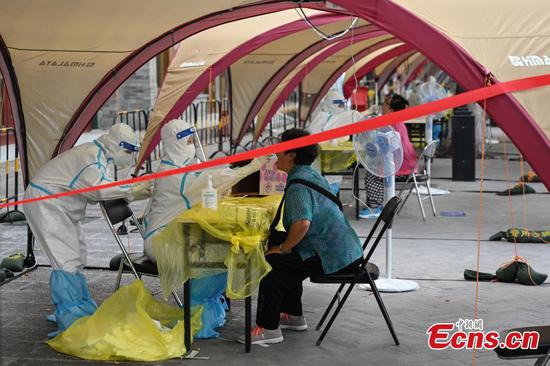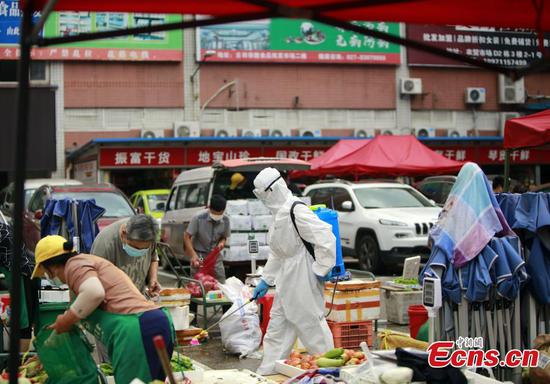The New York Times has criticized the U.S. administration for its policy on mass deportations on the pretext of curbing the spread of COVID-19, describing the move as "a public health hazard."
"That makes it all the more bitterly ironic that the United States, with the largest number of coronavirus cases in the world, is now consciously spreading the pandemic beyond its borders by continuing to deport thousands of immigrants, many infected with the coronavirus, to poor countries ill-equipped to cope with the disease," the newspaper said in an editorial last week.
Noting that the White House has drawn on a federal law on public health in late March to shut the borders to the migrants into the country, the editorial said that mass deportations are "not only cruel but also dangerous to public health abroad and at home."
Seeding and fanning the virus's spread in any country, especially those trapped in poverty and corruption, would only mean prolonging the bitter fight against the coronavirus, the opinion piece explained.
Meanwhile, the U.S. Immigrantion and Customs Enforcement (ICE) said that although it has been testing "aliens in custody and prior to removal" since April 26, it was getting merely some 2,000 tests per month from the Department of Health and Human Service, which is only a "sample" of the population, according to the article.
In parallel, dozens of deportation flights operated by the ICE have continued monthly, with destinations in Brazil, Colombia, the Dominican Republic, Ecuador, Guatemala, Haiti, Honduras, Jamaica, Nicaragua and El Salvador, the New York Times quoted the Center for Economic and Policy Research, an economic policy think tank based in Washington, as saying.
The United Nations Network on Migration said in mid-May that deportations may put everyone under serious health risks, including "migrants, public officials, health workers, social workers and both host and origin communities," calling on governments to suspend "forced returns" amid the pandemic.


















































